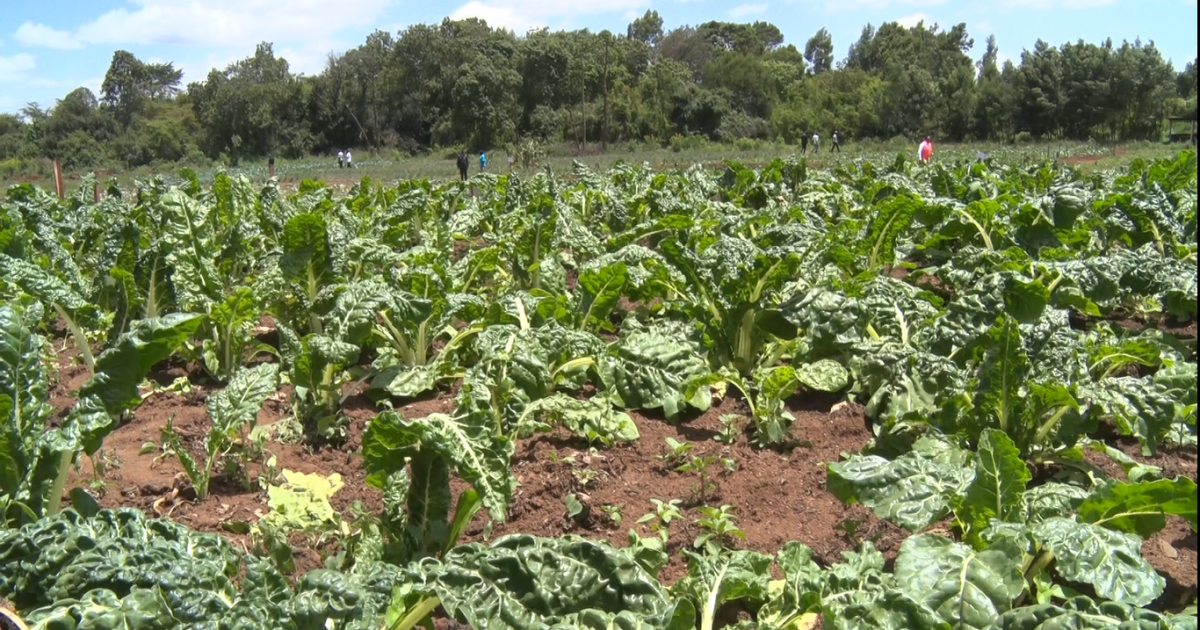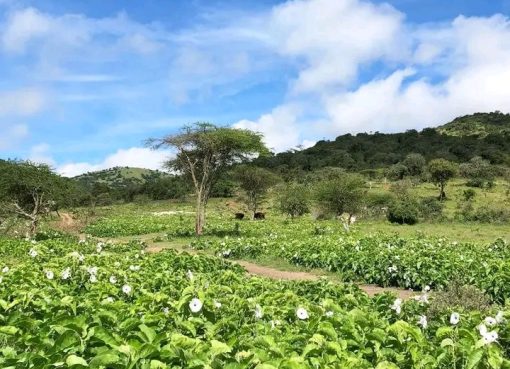The green blooming fields at the Nyandarua Institute of Science and Technology (NIST) attracts people to the institution farm, with a desire to know what is grown there, using what latest technologies.
The refreshing scent of the greens; Kales, Spinach, coriander and onions, makes stomachs rumble in hunger and mouths watering. A nearby seasonal river feeding the admirers with a diversifying cool fresh air to relax the tummies.
Many would think that the school only relies on the river for irrigation to supplement the rains as any observer desires to know what keeps the farms glowing at all times.
Phyllis Mbugua, a student at the institute, pursuing Diploma in General Agriculture has the secret behind this, the student showcases her skills and knowledge which she aims to pass to farmers on water conservation and reuse at the farm level.
Armed with a picture of a sewage treatment plant with two chamber septic tanks, Ms Mbugua explains to us how her creation, to treat waste water for reuse on farms, had been adopted by the institution to the success of other agricultural projects.
“In the first chamber there is formation of three layers which makes easier filtration of the pure water to another chamber, the first layer includes the oil and the grease the second contains the dirty water and at the bottom contains the sludge.
“The water is filtered to the second chamber where there is also the purification and filtration of water which is then released to the farms,” explains the second year student.
Her pictorial depicting a building whose waste pipe from the kitchen and the bathroom connect to the manhole then another pipe underground eases the flow of water to the first septic tank then to the second septic tank and to the farm.
“The water treated should only be used for irrigation and not for any consumption as it is not fully purified and may not be good for human health,” the innovator warns.
Mbugua opens to us on how her dream to pursue a degree in Agriculture or Environmental Science landed her at the Technical and Vocational Education Training Institution that now offers the courses at diploma level.
She adds, “This plant is mainly an advice for farmers in rural areas where there are large land tracts for maintenance, the plant is also said to reduce the rate of pollution in the area.
Mbogua says that farmers are recommended to build the conservation plant 45 to 90 metres from the houses, to avoid the odour that may come from the man hole.
“The conservation plant also purifies and filters the water from the house which is later used in irrigation of crops,” adds the 20 year old agriculture student.
Mbugua also advises farmers from arid areas to build the sewage treatment which will help in conservation of water and this will improve farming in the areas, therefore, minimizing the effects of drought.
The student also told the eager crowd listening to her, to practice it as it also help the farmer in saving the money they use to buy fertilizers.
“The water from the plant also has high nutritive components for the plants compared to the tap water as it also contains waste products which act as manure to the farms and with this farmers will save money for fertilizer,” Mbugua wows the crowds that crowded her stand during the Institutions Open-Day, held on Friday February 28, 2020.
Farmers are also advised to clean the sewerage plant through the man hole after two to three days for the prevention of diseases that may come from the emanating odour and the waste left.
The sewage treatment plant is said to be disadvantageous to people in urban area since it requires wide space for its maintenance and is favourable in rural areas where land area are relatively bigger.
Mbugua whose passion is to venture into agriculture, wishes to start a company in future that will help in building the sewage treatment plants for farmers, and not only that but any project that will help improve farming in the country.
By Mary Murugi





